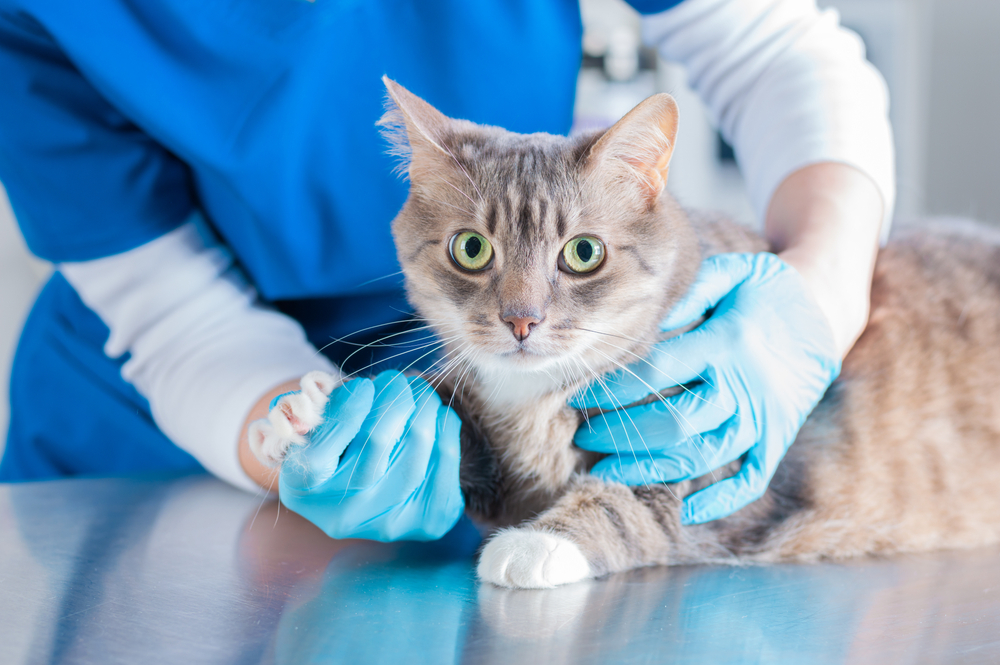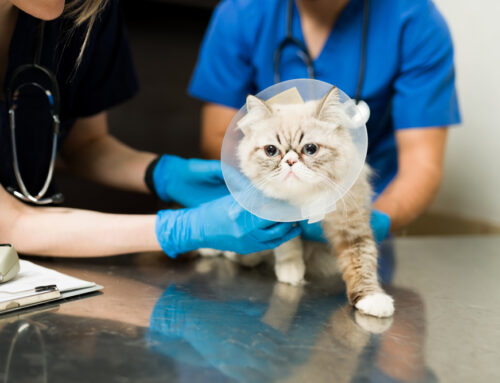Mild changes in your pet’s behavior may indicate a serious medical condition. Knowing when your pet’s sickness or injury is serious enough to warrant veterinary care is important to ensure they receive the appropriate attention. Our Stack Veterinary Hospital team wants to help you care for your pet like a hero, and we explain what signs warrant a veterinary examination.
Signs your pet needs veterinary care
Pets are excellent at hiding illness, and when they exhibit changes in their behavior, they often have been unwell for some time. Signs you should schedule a veterinary visit for your pet include:
- Lethargy — If your pet is less active or seems to be sleeping more than usual, this could indicate an illness such as an infection, organ disease, cancer, or any condition that causes pain.
- Decreased appetite — Any issue that makes your pet feel ill can reduce their appetite and should be evaluated by a veterinary professional.
- Increased appetite — An excessive appetite can indicate conditions such as Cushing’s disease, diabetes, intestinal parasites, and exocrine pancreatic insufficiency.
- Decreased water intake — Your pet needs water to remain hydrated, and a veterinary examination is necessary if they have stopped drinking enough, to determine why their water intake is decreased and to ensure they don’t need intravenous or subcutaneous fluids to treat dehydration.
- Increased water intake — Excessive water intake can indicate conditions such as Cushing’s disease, diabetes, kidney disease, and pyometra.
- Difficulty navigating stairs — If navigating stairs is difficult for your pet, they may have an orthopedic problem, such as arthritis. Other signs include reluctance to jump on or off elevated surfaces, stiffness after resting, and difficulty rising from a resting position.
- Bad breath — If your pet’s breath makes you cringe, they may have dental disease, which can lead to serious issues, such as loose or missing teeth, tooth root abscesses, oronasal fistulas, and jaw bone fractures. In addition, bacteria that enter their bloodstream can damage their organs.
- Itchiness — Many pets are affected by allergies, such as flea bite dermatitis (FAD), food allergies, and atopy (i.e., environmental allergies), and these conditions can cause itchy skin and lead to secondary skin and ear infections. A veterinarian’s diagnosis is necessary to develop an effective management plan.
- Obesity — Pet obesity is extremely common and is linked to health problems such as kidney disease, cancer, diabetes, and arthritis. If your pet is obese, a veterinary evaluation is necessary to devise a safe weight loss strategy.

Signs your pet needs emergency veterinary attention
In some cases, your pet can’t wait for a scheduled appointment. Signs that indicate a veterinary emergency include:
- Excessive bleeding — If your pet has an injury that is bleeding severely or continues to bleed for more than five minutes, wrap the wound in a clean bandage and seek immediate veterinary care.
- Difficulty breathing — If your pet is not receiving enough oxygen, serious complications can occur. Signs include increased respiration rate and effort, wheezing, open-mouthed breathing, head lowering, pale or blue mucous membranes, and increased abdominal movement during breathing.
- Excessive vomiting or diarrhea — If your pet has one bout of vomiting or diarrhea and otherwise appears healthy, you can monitor their condition. But, other signs, such as lethargy, fever, or abdominal pain, or multiple vomiting or diarrhea bouts, indicate they need immediate veterinary care.
- Inability to urinate — An inability to urinate can lead to significant kidney damage and other serious complications. If your pet is straining or vocalizing while attempting to urinate, seek emergency veterinary care.
- Collapse — Numerous issues can result in collapse or unconsciousness, and your pet needs immediate veterinary care to determine the cause.
- Toxicity — If you know or suspect your pet ingested a toxin, seek emergency veterinary care.
- Foreign body ingestion — If you know or suspect your pet ingested a foreign body, they need a veterinary evaluation as soon as possible.
- Inability to use a limb — If your pet is dragging their hind limbs or cannot bear weight on a limb, they need emergency veterinary attention.
- Severe trauma — If your pet experiences severe trauma, such as being hit by a car or falling from an excessive height, they may have internal injuries and should be evaluated by a veterinarian as soon as possible.
- Eye abnormalities — Eye problems can progress quickly and endanger your pet’s vision. If your pet has a swollen, squinty, or tearing eye, seek emergency veterinary care.
- Overheating — Heatstroke is considered a veterinary emergency. Signs include excessive panting, thick and ropey drooling, lethargy, collapse, vomiting, and diarrhea.
Tips to keep your pet happy and healthy
You can’t prevent every illness or injury for your pet, but you can take steps to lower their risk, including:
- Scheduling regular wellness visits — All pets should be evaluated by a veterinarian at least once a year, and senior pets, who are at increased risk for many health complications, should be examined every six months.
- Keeping your pet’s vaccinations current — Your pet’s vaccines protect them from dangerous diseases, and you should ensure they remain up to date.
- Providing year-round parasite control — Your pet should receive year-round protection against heartworms, fleas, ticks, and intestinal parasites.
- Scheduling regular dental evaluations — A professional veterinary dental cleaning is the only way to remove bacteria from under your pet’s gumline.
- Brushing your pet’s teeth — Plaque accumulates on your pet’s teeth quickly, and pets need their teeth brushed at home in between professional veterinary dental cleanings to decrease their dental disease risk.
If your pet is exhibiting any concerning signs, contact our American Animal Hospital Association (AAHA)-accredited team at Stack Veterinary Hospital, so we can determine their problem and devise an appropriate treatment plan.







Leave A Comment